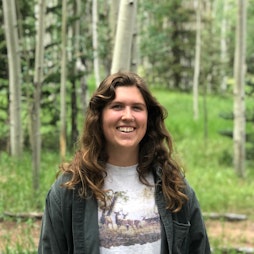Finding the Hope Again
Our year-round program team headed out west to Portland, Oregon last month for the annual American Camp Association National Conference – the hope and possibility in the air was palpable during our first time attending a conference in person since February 2020.
How many times in the past couple of years have we all felt like we’d lost a bit of hope? Hope that we’d get to come back to camp, hope for our kids’ experiences and health, hope for the pandemic to end and for life to resume. I know that is true for many of us around here – and a conference session I attended helped me to reframe the way I think about hope and the role it can play in our lives.
Camp Hope America is a year-round organization providing camp experiences for children who have experienced trauma and, as the name suggests, the focus is on using a hope-centered lens to support children and create programming. Their session sought to apply that lens more broadly, and suggest that we could all center hope a bit more in our lives and camps.

“Hope is believing in yourself, believing in others, and believing in your dreams,” John Hamilton, National Director of Camp Hope America, and Jamal Stroud, Mentor and Outreach Manager, told us in Portland. And something clicked for me when they said that – hope is not blind positivity or ignoring a problem (or the effects of a pandemic) – hope is believing that anything is possible and you have the power to get there. It is leaning on other people when going it alone is too much, and it is knowing that you have both agency and support if you’re working independently. Hope is what helps us be resilient and grow in the face of challenge and in the moment of triumph. The spirit of camp, in so many ways, embodies this definition of hope.
And how do we get there, in the face of a pandemic that feels over but isn’t quite, and after the experiences we have had over the past two years? According to Hamilton and Stroud, the research shows that play could be an answer. Play?! That’s what we do at camp. That’s what we live and breathe. If play is the gateway to hope, maybe we just need to play more in our everyday lives. We need to allow time for joy, trust, compassion, and community-building. Here’s the best part of play (and perhaps what sets it apart from academics and other structured activities we do): the act of playing is more important than the outcome, says John. It’s one of the only things we do in life that is good for the sake of itself.
Thinking about play makes us even more excited for a summer that we’re already filled to the brim with hopefulness about. Every summer is different and new, but we also feel confident that this’ll be our best yet. In anticipation of the summer, I want to play more – not only because campers beat the pants off of me in Gaga every year and I want to be able to hold my own someday – but because I want my hope meter to start to go through the roof.

How is your hope meter? And how can you play a little more?
